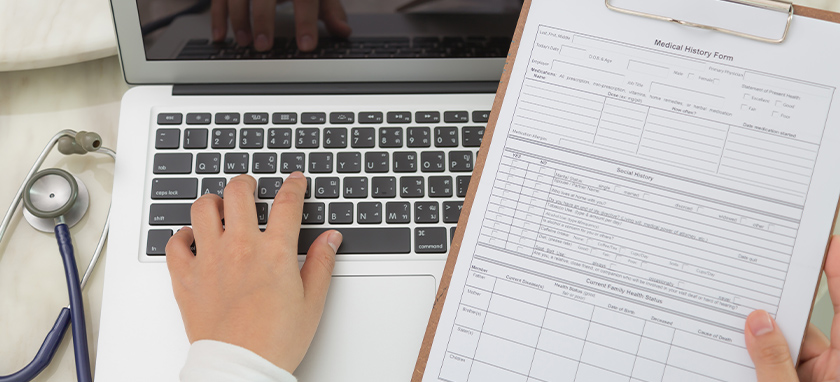
Efficient Accounts Receivable in Medical Billing
Efficient Accounts Receivable in Medical Billing is vital for the financial prosperity of medical practices within the intricate healthcare industry. The process of medical billing encompasses the intricate task of submitting claims to insurance providers and guaranteeing timely reimbursement for the services provided. This article delves into the importance of effective accounts receivable in medical billing, examines essential strategies for its management, emphasizes the advantages it brings, discusses common obstacles, offers best practices, and concludes with actionable insights tailored for healthcare providers.
Within the realm of healthcare, the term “accounts receivable” pertains to the unpaid funds owed to medical practices by insurance companies, patients, and other third-party payers. It is of utmost importance for healthcare providers to handle these accounts with efficiency in order to maintain their financial stability. This article endeavors to illuminate the significance of effective accounts receivable management in the field of medical billing and provides practical strategies to enhance and streamline this crucial process.
Understanding Accounts Receivable
Accounts Receivable refers to the outstanding invoices or claims that healthcare providers are yet to receive payment for. These accounts are typically generated from services rendered to patients or procedures covered by insurance companies. They represent the financial assets of medical practices and require active management and collection to maintain a consistent cash flow.
Efficient accounts receivable management holds significant importance in medical billing for several reasons. Firstly, it ensures the financial stability of the medical practice by reducing outstanding debts and improving cash flow. By actively managing accounts receivable, healthcare providers can optimize their revenue cycle and allocate resources effectively.

Furthermore, effective accounts receivable management helps minimize claim denials, which can have a negative impact on the practice’s revenue stream. By ensuring accurate and timely submission of claims, providers can improve their chances of receiving reimbursement from insurance companies.
Another benefit is the reduction of administrative burdens associated with chasing unpaid invoices. When accounts receivable are managed efficiently, healthcare providers can dedicate less time and effort to follow-up on outstanding payments, allowing them to focus on patient care and other essential tasks.
Additionally, efficient accounts receivable management contributes to enhanced patient satisfaction. By streamlining the billing process and providing clarity regarding outstanding balances, patients are more likely to understand their financial responsibilities and make prompt payments. This, in turn, fosters positive patient-provider relationships and improves overall patient experience.
Accounts receivable is vital in medical billing as it ensures financial stability, minimizes claim denials, reduces administrative burdens, and enhances patient satisfaction. Healthcare providers should implement strategies and best practices to optimize their accounts receivable processes and maintain a healthy revenue cycle.
Strategies for Accounts Receivable Management
To achieve efficient accounts receivable management in medical billing, healthcare providers should implement the following key strategies:
Accurate Patient Information
Collecting accurate and complete patient information at the point of registration is essential. This includes verifying insurance coverage, obtaining correct contact details, and capturing comprehensive demographic data. Accurate patient information helps reduce claim denials and facilitates effective communication with patients regarding billing matters.
Clear and Transparent Billing Procedures
Clear and transparent billing procedures are crucial for minimizing confusion and preventing delays in payment. Healthcare providers should ensure that patients receive detailed and easy-to-understand statements that clearly outline the services rendered, the associated costs, and any insurance adjustments. Transparency helps patients understand their financial responsibility and reduces the likelihood of disputes or delayed payments.
Timely Submission of Claims
Submitting claims promptly is vital for ensuring timely reimbursement. Delays in claim submission can lead to payment bottlenecks and cash flow interruptions. Medical practices should establish efficient workflows that prioritize the timely submission of accurate claims to insurance providers, avoiding missed filing deadlines and potential denials.
Effective Follow-up on Unpaid Claims
Follow-up on unpaid claims is a critical component of accounts receivable management. Consistent and proactive communication with insurance companies is necessary to resolve claim discrepancies, address denials, and ensure timely payment. Implementing a systematic follow-up process helps identify and rectify claim errors promptly, reducing the overall accounts receivable cycle.
Streamlined Payment Processing
Offering convenient payment options and streamlining the payment process improves the likelihood of prompt payment. Healthcare providers should explore various payment methods such as online portals, automated recurring payments, and electronic funds transfers. Streamlining payment processing not only enhances the patient experience but also accelerates cash flow and reduces the time spent on manual payment reconciliation.
Implementing Technology Solutions
Leveraging technology solutions such as electronic health records (EHR) systems, medical billing software, and revenue cycle management (RCM) tools can significantly streamline accounts receivable management. These tools automate administrative tasks, facilitate accurate claim submission, provide real-time claim status updates, and enable efficient tracking of accounts receivable. Implementing technology solutions can improve efficiency, reduce errors, and enhance overall revenue cycle performance.
Benefits of Accounts Receivable Management
Efficient accounts receivable management in medical billing offers several notable benefits for healthcare providers. These include:
Improved Cash Flow
Efficient accounts receivable management accelerates cash flow by reducing the time it takes to collect outstanding payments. This, in turn, provides medical practices with the financial resources necessary for operational expenses, investments in technology, and growth opportunities.
Reduction in Denied Claims
Effective management of accounts receivable helps minimize claim denials. By adhering to accurate coding practices, staying updated with payer requirements, and implementing robust documentation processes, healthcare providers can reduce the number of claims rejected by insurance companies. This results in higher revenue realization and reduced administrative costs associated with reworking denied claims.
Enhanced Patient Satisfaction
Efficient accounts receivable management contributes to enhanced patient satisfaction. By ensuring clear and transparent billing practices, promptly addressing patient inquiries, and offering flexible payment options, healthcare providers foster positive patient experiences. Patients who understand their financial obligations and receive excellent customer service are more likely to pay their bills promptly and recommend the medical practice to others.
Increased Revenue
Optimizing accounts receivable processes leads to increased revenue for medical practices. By reducing the time between service delivery and payment receipt, healthcare providers can improve their financial performance. Additionally, minimizing claim denials and maximizing reimbursement rates directly impact revenue generation, enabling medical practices to invest in patient care, technology upgrades, and business growth.
Common Challenges in Accounts Receivable Management
While accounts receivable management is essential for medical billing, healthcare providers often face various challenges in this area. Understanding these challenges is the first step toward implementing effective solutions. Some common challenges include:
Insurance Claim Denials
Insurance claim denials pose a significant challenge to efficient accounts receivable management. Denials can occur due to various reasons such as coding errors, incomplete documentation, lack of medical necessity, or non-covered services. Addressing claim denials requires thorough review and resubmission, which can be time-consuming and negatively impact cash flow if not managed effectively.
Complex Billing Codes
The complexity of billing codes, including Current Procedural Terminology (CPT) codes and International Classification of Diseases (ICD) codes, presents challenges in accurate claim submission. Medical practices must ensure that their coding processes comply with the latest coding guidelines, are updated regularly, and are supported by trained coding professionals.
Inadequate Staff Training
Insufficient staff training in accounts receivable management can hinder the effectiveness of the billing process. Healthcare providers must invest in continuous training and education to keep staff updated on industry changes, regulatory requirements, and best practices for managing accounts receivable. Well-trained staff can identify and address issues promptly, reducing errors and improving overall efficiency.
Outdated Billing Systems
Using outdated billing systems or relying on manual processes can impede efficient accounts receivable management. Legacy systems may lack automation capabilities, generate billing errors, or be incompatible with electronic claim submission. Upgrading to modern medical billing software or partnering with reputable revenue cycle management vendors can help overcome these challenges.
Best Practices for Optimizing Accounts Receivable Processes
To optimize accounts receivable processes and achieve maximum efficiency, healthcare providers should consider the following best practices:
Conduct Regular Audits
Regular audits of accounts receivable processes help identify gaps, inefficiencies, and areas for improvement. Audits should focus on key metrics such as claim denial rates, days in accounts receivable, and revenue cycle performance. Analyzing these metrics allows medical practices to address bottlenecks, implement corrective actions, and refine their billing processes.
Train and Educate Staff
Investing in comprehensive training and continuous education for staff members involved in accounts receivable management is crucial. Staff should be well-versed in coding requirements, payer guidelines, claim submission protocols, and effective communication strategies. This knowledge equips them to handle billing challenges, resolve claim denials, and optimize the revenue cycle.
Utilize Key Performance Indicators (KPIs)
Monitoring and measuring key performance indicators (KPIs) related to accounts receivable management provides valuable insights into overall performance. KPIs such as accounts receivable aging, first-pass claim acceptance rate, and average time to payment help healthcare providers gauge the effectiveness of their billing processes. Regular tracking of these metrics allows for timely intervention and performance improvement.
Implement Effective Collections Strategies
Establishing effective collections strategies is essential for optimizing accounts receivable management. Clearly defining payment terms, establishing credit policies, and setting up systematic reminder systems can improve collection rates. Offering convenient payment options and negotiating payment plans for financially challenged patients further increases the likelihood of timely payment.
Leverage Outsourcing Opportunities
Outsourcing accounts receivable management to reputable medical billing service providers can be a viable solution for healthcare providers. Outsourcing allows medical practices to leverage the expertise and technology infrastructure of specialized vendors. It reduces administrative burdens, minimizes staffing requirements, and ensures consistent revenue cycle performance.
Efficient accounts receivable management is crucial for the financial health and success of medical practices. By implementing key strategies such as accurate patient information collection, clear billing procedures, timely claim submission, effective follow-up, streamlined payment processing, and technology solutions, healthcare providers can optimize their accounts receivable processes. The benefits of efficient accounts receivable management include improved cash flow, reduced claim denials, enhanced patient satisfaction, and increased revenue. Overcoming challenges in this area through best practices such as regular audits, staff training, KPI monitoring, effective collections strategies, and outsourcing opportunities further enhances the effectiveness of accounts receivable management. By prioritizing and optimizing accounts receivable, healthcare providers can ensure financial stability, improve operational efficiency, and provide excellent patient care.
Frequently Asked Questions
How can I improve my medical billing accounts receivable?
To improve medical billing accounts receivable, focus on accurate patient information collection, clear billing procedures, timely claim submission, effective follow-up on unpaid claims, streamlined payment processing, and implementation of technology solutions. Conduct regular audits, invest in staff training, monitor key performance indicators, implement effective collections strategies, and consider outsourcing opportunities.
What are some common reasons for claim denials?
Claim denials can occur due to various reasons such as coding errors, incomplete documentation, lack of medical necessity, non-covered services, or failure to meet payer requirements. Understanding the common reasons for claim denials and addressing them through thorough review, accurate coding, and timely resubmission can minimize denials and improve accounts receivable management.
How often should I conduct audits of my accounts receivable?
It is recommended to conduct audits of accounts receivable processes regularly. The frequency may vary based on the size of the medical practice, complexity of billing procedures, and specific needs. Quarterly or biannual audits can help identify inefficiencies, bottlenecks, and areas for improvement, enabling timely intervention and continuous performance enhancement.
What are KPIs in medical billing?
Key performance indicators (KPIs) in medical billing are measurable metrics used to assess the performance and effectiveness of accounts receivable management. Examples of KPIs include accounts receivable aging, first-pass claim acceptance rate, average time to payment, claim denial rate, and collection rate. Monitoring these KPIs helps healthcare providers track their revenue cycle performance and identify areas for improvement.
Is outsourcing accounts receivable management a good option for healthcare providers?
Outsourcing accounts receivable management can be a beneficial option for healthcare providers. It allows medical practices to leverage the expertise, technology infrastructure, and specialized knowledge of professional medical billing service providers. Outsourcing reduces administrative burdens, improves efficiency, ensures consistent revenue cycle performance, and allows healthcare providers to focus on core patient care activities.
Request Call Back
